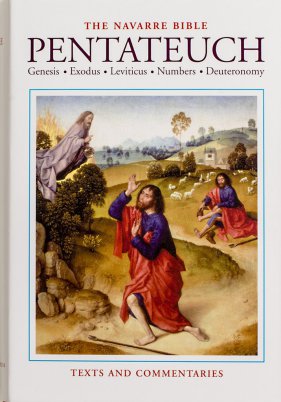 ♱
Key Verses:
♱
Key Verses:
“Hear, O Israel: The Lord our God is one Lord:
And thou shalt love the Lord thy God with all thine heart, and with all thy soul, and with all thy might.“ (Deuteronomy 6:4-5; KJV)
“Thou shalt not avenge, nor bear any grudge against the children of thy people, but thou shalt love thy neighbour as thyself: I am the Lord.” (Leviticus 19:18; KJV)
♱“And one of the scribes came, and having heard them reasoning together, and perceiving that he had answered them well, asked him, Which is the first commandment of all? And Jesus answered him, The first of all the commandments is, Hear, O Israel; The Lord our God is one Lord: And thou shalt love the Lord thy God with all thy heart, and with all thy soul, and with all thy mind, and with all thy strength: this is the first commandment.
And the second is like, namely this, Thou shalt love thy neighbour as thyself. There is none other commandment greater than these.” (Mark 12:28-31; KJV)
“On these two commandments hang all the law and the prophets.” (Matthew 22:40; KJV)
My Reflections:As a rabbi, a teacher of the Torah, Jesus was asked many questions by his disciples, interested listeners, other teachers, and those who wished to test him. In one encounter in Jerusalem, he was teaching in the Temple when a scribe approached and asked him, “Which is the first commandment of all?” In others words, which is the greatest? Jesus answered, quoting from Deuteronomy (6:4-5), that the first and greatest commandment is that which begins “Hear, O Israel; The Lord our God is one Lord” and commands that “thou shalt love the Lord thy God with all thy heart, and with all thy soul, and with all thy mind, and with all thy strength.” He added a second, which he said was like it, “Thou shalt love thy neighbour as thyself,” quoted from the book of Leviticus (19:18). In the Gospel of Mark, he concludes by asserting that there are no other commandments greater than these, and in Matthew, he says, “On these two commandments hang all the law and the prophets.”
In the Gospel of Luke (10:25-37), a similar question-and-answer exchange occurs between Jesus and a lawyer; in this case, the lawyer cites the two commandments, and asks a follow-up question: “And who is my neighbour?” Jesus answers him with a parable, the now-famous story of the Good Samaritan, who goes out of his way to show mercy to a distressed stranger in need, at some personal cost.
Loving neighbor as oneself was the consistent teaching revealed in the Torah, spoken to Moses by the Lord, and repeated in Exodus, Leviticus, and Deuteronomy. Here is the way it was taught in Leviticus:
“And if a stranger sojourn with thee in your land, ye shall not vex him. But the stranger that dwelleth with you shall be unto you as one born among you, and thou shalt love him as thyself; for ye were strangers in the land of Egypt: I am the Lord your God.” (19:33-34)
The Israelites knew what it was to be an alien in Egypt, and the Lord tells them to treat strangers as if they were not strangers, as the Israelites themselves would have wished to be treated in Egypt. In his new book on the archaeological and textual evidence for the Exodus (in a chapter called “The Mystery of Judah: Love Your Neighbor as Yourself”), Richard Elliott Friedman argues that the Hebrew word rē‘a, used in many contexts for “neighbor,” encompasses the alien or foreigner. He cites many of these different contexts, and concludes: “In short, the word rē‘a is used to refer to an Israelite, a Canaanite, an Egyptian, or to everyone on Earth” (p. 210). Otherwise, the parallelism of “love your neighbor as yourself” and “you were once strangers/aliens in the land of Egypt” makes no sense. It is clear from Jesus’ response to his questioner (in Luke 10), in which he tells the parable of the Good Samaritan, that he interpreted “neighbor” in this way–as embracing the foreigner and, therefore, all people.
In one sense, Jesus taught nothing new: both commandments were part of the Law and it was the responsibility of all those who sought righteousness to reverence and obey them both. But by citing the command from Leviticus and juxtaposing it with the great “Hear, O Israel,” the Shema*, he highlighted their profound complementarity. Love of God and love of neighbor are bound together in a mutual dependence; one cannot truly fulfill one of these without truly fulfilling the other. The pairing of these two commandments has proven to be so profoundly demanding and comprehensive in scope that they can occupy a lifetime of prayer, worship, and loving service.
Catholicism has always revered the full Ten Commandments given to Moses by G-d on Sinai. They are the basis of the moral law for Christians as they have been for Jews since the time after the Exodus from Egypt. Sixteen percent of the thick Catechism of the Catholic Church is devoted to explicating the Ten Commandments, to enable Catholics to apply them to their own lives in a full examination of conscience (e.g., when preparing for the Sacrament of Reconciliation, otherwise known as Confession) or simply to aid in making life decisions in keeping with God’s will.
Therefore, it is of the highest importance that Jesus teaches these two–whole-hearted love of God and love of neighbor as oneself–as principal keys to unlocking all the Commandments already given to God’s people: “On these two hang all the law and the prophets.” In the Sermon on the Mount he said:
“Think not that I am come to destroy the law, or the prophets: I am not come to destroy, but to fulfil. For verily I say unto you, Till heaven and earth pass, one jot or one tittle shall in no wise pass from the law, till all be fulfilled. Whosoever therefore shall break one of these least commandments, and shall teach men so, he shall be called the least in the kingdom of heaven: but whosoever shall do and teach them, the same shall be called great in the kingdom of heaven.” (Matthew 5:17-19; KJV)
Much of the rest of chapter 5 of Matthew recounts Jesus’ teaching on what it means truly to obey the Commandments, from our hearts, and not just in outward deeds. This is surely a great part of what is meant by loving one’s neighbor–not simply refraining from killing, for example, but settling any quarrel with a brother or sister before bringing one’s offering to worship God:
“Therefore if thou bring thy gift to the altar, and there rememberest that thy brother hath ought against thee; Leave there thy gift before the altar, and go thy way; first be reconciled to thy brother, and then come and offer thy gift.” (Matthew 5:23-24; KJV)
This example illustrates the intimate way the two parts of the Great Commandment intertwine. As the Christ, the Messiah and Son of God, Jesus is greater than the prophets, but clearly this teaching situates Jesus squarely within the prophetic tradition of his own Jewish people: “what doth the Lord require of thee, but to do justly, and to love mercy, and to walk humbly with thy God?” (Micah 6:8; KJV).
A New Year’s resolution well worth writing in the heart.
*****
*Note: For the full text of The Shema in English, the proper way to recite it, and its significance in Judaism, see “Translation of The Shema” and “The Shema: The Daily Declaration of Faith,” along with other related articles at Chabad.org.
Resources:The Navarre Bible: The Pentateuch. Dublin: Four Courts Press/Princeton: Scepter Publishers, 1999.
Richard Elliott Friedman. The Exodus: How It Happened and Why It Matters. New York: HarperCollins, 2017.
Advertisements Share this:
- More





